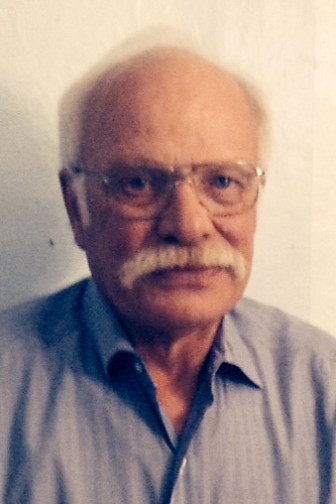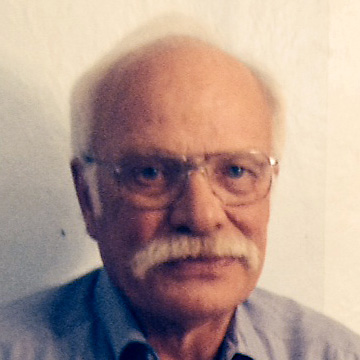 As a retired juvenile justice professional with 20 years of experience working at the state level with OJJDP (the Office of Juvenile Justice and Delinquency Prevention), I am surprised and appalled by recent attacks leveled by anonymous OJJDP staffers and Sen. Chuck Grassley against OJJDP Administrator Robert Listenbee.
As a retired juvenile justice professional with 20 years of experience working at the state level with OJJDP (the Office of Juvenile Justice and Delinquency Prevention), I am surprised and appalled by recent attacks leveled by anonymous OJJDP staffers and Sen. Chuck Grassley against OJJDP Administrator Robert Listenbee.
I am particularly astounded by the anonymous allegation that his brief tenure has created worse morale than even that of Robert Flores, the previous OJJDP administrator who left the Office under a cloud of mismanagement and corruption.
Appointed by President George W. Bush, Mr. Flores had little understanding of or interest in the nation’s juvenile justice system. Instead, he was extremely focused on sex offenses and youth prostitution, to the extent that he expended nearly $5,000 in 2003 on a six-day trip to Turkey to address a government-sponsored conference on the victims of sexual exploitation.
His tenure at OJJDP reflected these interests, as well as his close ties to faith-based organizations and Republican politics. In 2008, he was questioned by Congress concerning his possible misdeeds and also investigated by the Justice Department’s Office of the Inspector General.
The numerous allegations examined by the Inspector General‘s Office included the charge that he failed to make a keynote address to the National Council of Juvenile and Family Court Judges in Las Vegas in 2004 because he was on the golf course.
More significantly, he was alleged to have personally intervened in OJJDP’s grant review process to steer funding to his favored organizations, such as the World Golf Foundation and faith-based groups even though these applications scored much lower than that of organizations not receiving funding during the peer review process. This allegation was confirmed, as well as the charge that Mr. Flores and his subordinates violated federal procurement procedures on several occasions to steer contracts to personal associates and friends.
In one such instance, a contractor selected to provide advice to faith-based organizations on gang prevention could not account for the work he allegedly conducted for $150,000. Several of these allegations were quite serious and could possibly have led to prosecution.
In short, Mr. Flores subverted OJJDP’s grants and contract process, leading to an extraordinary drop in morale and the departure of several long-term staffers. It strains credibility to imagine OJJDP morale being lower now than during Mr. Flores’ tenure.
Legal policy is always subject to varied interpretations and differing methods of implementation. In my experience, there has been a tendency among some OJJDP staffers, over the years, to carry the mandates of the OJJDP act to illogical extremes. For example, in the early 2000s it was proposed that states be mandated to monitor all shopping malls (that’s right: shopping malls) to ensure that holding cells and practices for shoplifters and other offenders meet OJJDP requirements.
This policy would have imposed a truly unreasonable burden on the states and was ultimately not implemented, after much outcry from the states. Likewise, in the early 1990s, it was proposed that states such as Alaska and Wyoming be held in violation of the JJDP Act when bad weather made the transportation of these youth in small aircraft from adult to juvenile facilities too dangerous. This too was ultimately rejected as an unreasonable requirement after much outcry from the states.
It seems unreasonable that Mr. Listenbee is being condemned by Sen. Grassley for policies and practices implemented by OJJDP long before his tenure. Indeed, prior to his tenure, previous political appointees initiated confusing and unnecessary staff reorganizations that severely undermined morale and led to the loss of a great deal of institutional knowledge within the agency.
In fact, the only specific complaint against him appears to be that he has failed to vigorously enforce the Acts provisions regarding Disproportionate Minority Contact (DMC) protection. Interpretation and implementation of the DMC mandate has been subject to a wide variety of interpretations by OJJDP since its inclusion in the OJJDP Act during the 1980s.
Originally, the states were required to conduct in-depth research on DMC and develop strategies to address the issue. States have subsequently been required to conduct additional research and fund DMC coordinators and DMC-specific programming. Unlike the jail detention and status offender provisions of the act, however, the states have not been required to achieve statistical benchmarks for this mandate.
Some advocates and OJJDP staff have long called for the states to demonstrate not just effort but progress in reducing actual DMC rates as a condition of receiving OJJDP funding.
Past administrations have rejected this approach, and requirements for DMC compliance have varied a great deal over the years as OJJDP has struggled with setting reasonable goals for an extremely complex and difficult issue.
Further, it must be said, the amount of OJJDP funding is extremely limited, and has been reduced so significantly in recent years that it is completely inadequate to impact actual arrest or confinement rates for minorities. To expect a state to achieve reductions of DMC when they receive a minimum allocation of only $250,000 to ensure all four protections are met is unreasonable. Some within OJJDP have always recognized this dilemma; others have not.
Sen. Grassley’s allegations against Mr. Listenbee seem to be rather hypocritical in that he has stood aside while Congress has continually reduced OJJDP funding and, to my knowledge, had little or nothing to say about the agency under Mr. Flores’ administration.
Unlike many of his predecessors, Mr. Listenbee has a professional background in juvenile justice and appears to seek the long-needed expansion of OJJDP’s purview beyond the narrow mandates of the Act. He should be supported, not undermined, by both his staff at OJJDP and Congress.
Before retirement in 2010, Pete Colbenson had 33 years of experience within Georgia’s juvenile justice system. His positions included probation officer, director of a community treatment program, detention center director, juvenile justice specialist and director of the Georgia Children and Youth Coordinating Council.
